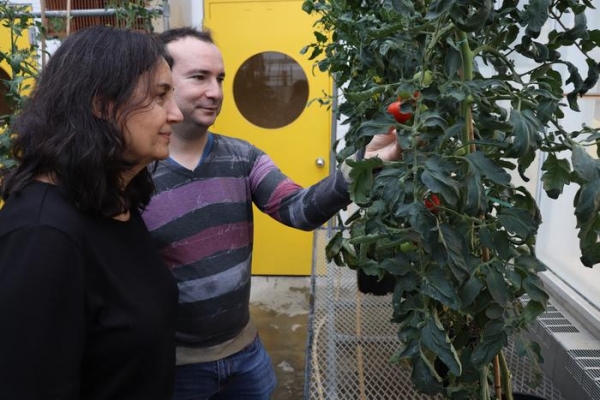Tomatoes are a staple in diets worldwide and an essential part of sustainable agriculture. Now, scientists at BTI have reported groundbreaking insights into a long-known tomato mutation, unlocking the potential for enhanced fruit quality and stress resistance.
“What started as curiosity about an intriguing mutant has blossomed into a potentially transformative discovery for sustainable agriculture,” said lead researcher Carmen Catalá, an adjunct assistant professor at BTI and Senior Research Associate in the School of Integrative Plant Science at Cornell.
The investigation, published in the Journal of Experimental Botany, focused on decoding the mystery of a tomato mutant called “adpressa,” first discovered in the 1950s. The mutant garnered attention because of an unusual characteristic: adpressa plants are unable to sense gravity. These plants often grow close to the ground rather than upward toward the sky; hence, their name conveys a habit of being flat (adpressed) against the soil.
Read more at Boyce Thompson Institute
Image: Adjunct Assistant Professor at BTI Carmen Catalá and BTI postdoctoral researcher Philippe Nicolas examine tomatoes growing in a BTI greenhouse. Credit: Boyce Thompson Institute


